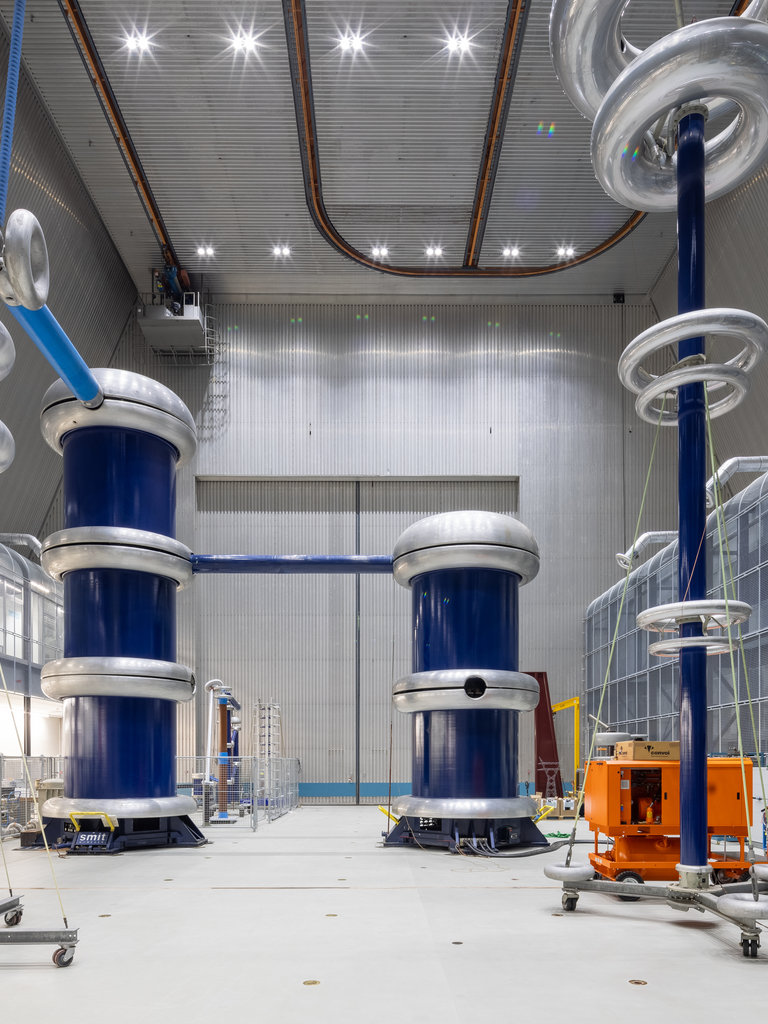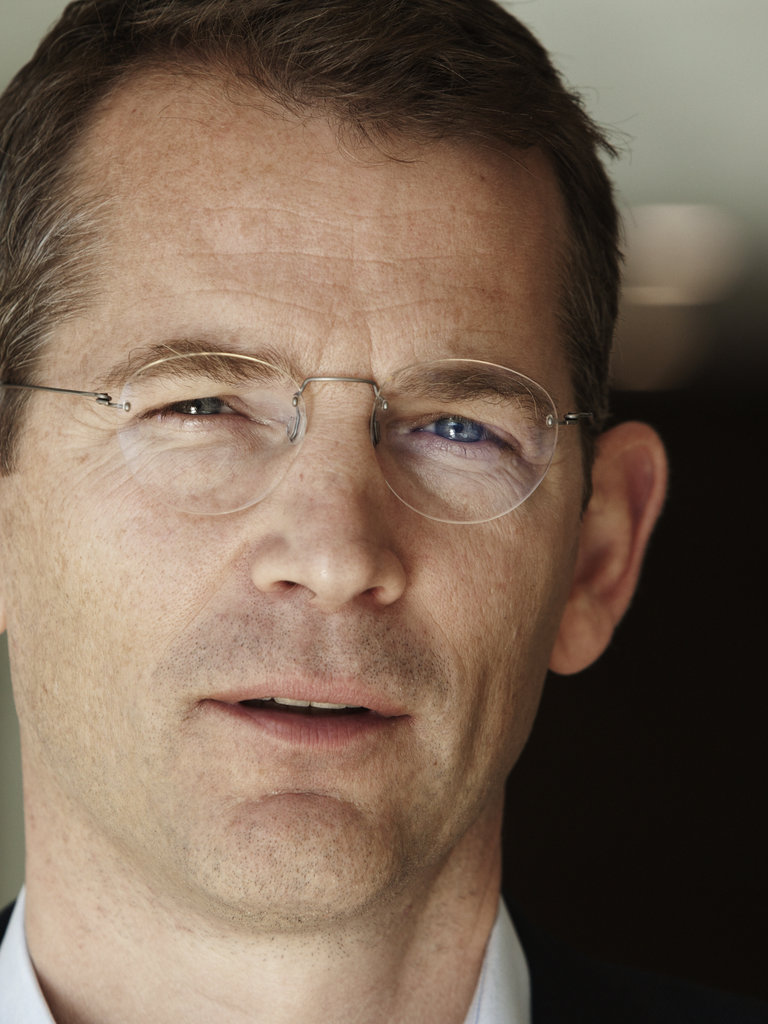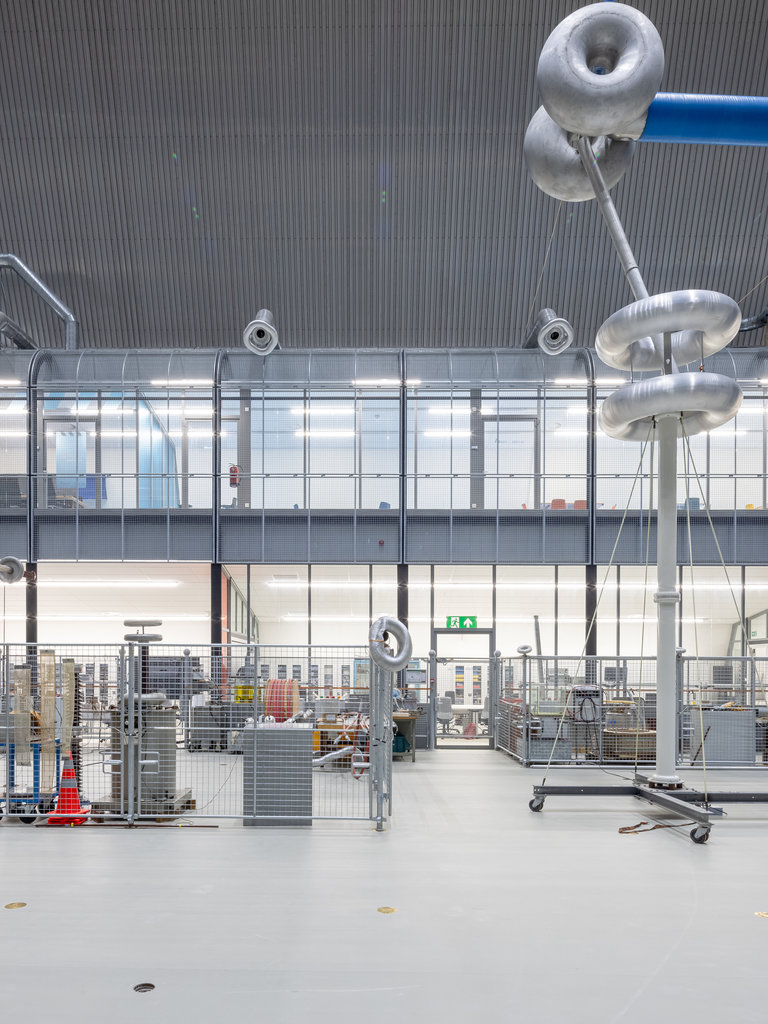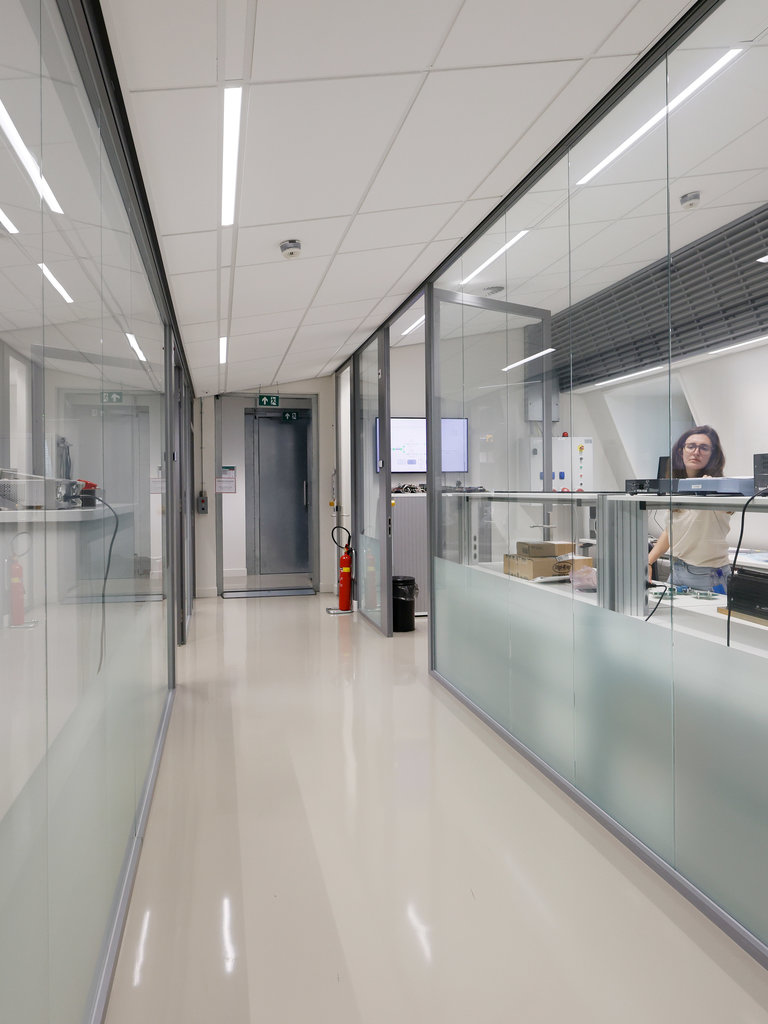
‘We need to work together to make the energy transition a success’
Tennet is working with TU Delft on a sustainable electricity grid
Door: Jurjen Slump
Tennet has an important role to play in the energy transition. The company faces some major challenges. To develop new innovations, the European grid operator is working with TU Delft in the recently opened Electrical Sustainable Power (ESP) Lab, where the electricity grid is being readied for the future. Maarten Abbenhuis, chief operating officer (COO) at Tennet, was closely involved in the development of this unique research and testing facility.
‘Revolutionary’. This is how Abbenhuis (himself an alumnus, who studied systems engineering, policy analysis and management in the 1990s) describes what has happened in the last decade. The existing high-voltage network dates from the 1960s and had considerable overcapacity until recently. However, the last decade has seen a ‘huge shift’ take place from the generation of energy using coal and gas towards solar and wind power. “All of these renewable energy sources have to be connected to our network.”
Things are getting tight. There have been several recent reports in the newspapers that new wind turbines, solar fields and other renewable projects cannot be connected to the network because of a lack of capacity. “In Drenthe, there is a lot of low-cost land available for new solar farms and wind turbines, but our high-voltage network has only limited capacity there”, says Abbenhuis, highlighting one of the many challenges.
Investment programme
Not only is supply increasing, demand is also set to rise. “That means that we have to improve the capacity of our network in order to be able to match demand and supply at any time of day.” That calls for a ‘dynamic’ network, because the amount of energy generated by wind and the sun varies significantly compared to coal-fired and gas-fired power plants, for example. All kinds of different technological issues are involved in this.
Tennet has set up a major investment programme intended to cope with the increasing demand and supply of renewable energy. The year 2020 saw investments to the tune of € 3.4 billion and that will soon increase to around 5 to 6 billion a year.
The most important challenge faced by Tennet involves integrating the different speeds with which these developments are happening. Any new government policy takes time to bed in, the construction of new infrastructure has already accelerated and, finally, there is the ‘superfast’ increase in renewable energy. “The main challenge will be in ensuring that we converge all these different speeds. One way of achieving it will be through innovation, which is why we are so proud to be a partner of the ESP Lab.”

It would be great if we could structure the system in such a way as to ensure that electricity consumption moves in line with availability
Maarten Abbenhuis

Electrolysers, heat pumps and solar panels
All of Tennet's statutory duties – transport services, system services and facilitating the market – can be simulated in the lab, using hardware and software. That opens up unique opportunities for developing integrated solutions for the energy system.
“Put in concrete terms: how will 150 electrolysers for the production of hydrogen effect our network? Or, think of the millions of heat pumps, solar panels and electric vehicles that will be connected in the years ahead. How will the system react to them? How can we cope with this as effectively as possible with the existing infrastructure? You can model all of that perfectly in the ESP Lab.”
Another example: what will happen to the European network if all of the wind suddenly drops? How do you downscale wind farms when necessary, for example for maintenance? “In situations like that, you need flexibility. That’s also something we can research effectively in the ESP Lab.”
Supply-driven
Abbenhuis continues: “It would be great if we could structure the system in such a way as to ensure that electricity consumption moves in line with availability. When there’s a lot of wind, industry could up the tempo a little. When there’s less wind, we can scale things down. Envisaging the practical implications of that is something we can very effectively simulate in the new lab.” There is also the issue of the market: how will all of this green energy be bought and sold? New market concepts can also be developed in the ESP Lab, together with academics from the Faculty of Technology, Policy and Management.
The same applies to software and data. The Lab is home to the Control Room of the Future. “There has been a huge increase in the amount of operational data. But how do we use that data in a way that also benefits us? All of these issues make for very interesting research projects.”
What makes the lab unique is that it enables Tennet to develop and test innovations and applications without the end user being affected. “What matters most is security of supply. We need to do all the maintenance and updates on the grid while it’s in use. That means that we can’t simply use new hardware without first testing it thoroughly.”

Integrated approach
Tennet has an important role to play in the energy transition. How can this be accelerated, in Abbenhuis's view? “We need to look for solutions at system level. Lots of different parties are involved, each with their own specific roles. An integrated approach will be essential in ensuring that the network can change into a European multifunctional connector of a dynamic electricity supply, with controllable demand for energy and a link to storage in molecules and electrons.”
The ESP Lab is the ideal place for developing and testing these innovations to enable them to be successfully integrated. That is what makes the lab an essential link in the successful shift towards a new energy system. “That’s why it makes perfect sense for us to be a partner from the outset.”
“If we want to make a success of the energy transition, we will need to work together: universities, the market, industry, government and the grid operators”, says Abbenhuis. “We have a mammoth task ahead of us in the next twenty years. That’s why we need to continue to nurture our partnership.”
Privileged
“I consider myself privileged to be able to work in a sector that is tasked with completely reinventing itself”, he concludes. “I’m convinced that we’re doing the right things to make the energy transition a reality, in alliance with science. If we are successful in this, we can use that knowledge to ensure that the rest of the world follows suit and that we leave the Earth behind in a better state than we found it.”
About Tennet
Tennet is a leading European grid operator, also known as Transmission System Operator or TSO. It designs, builds, maintains and operates the high-voltage network in the Netherlands and large parts of Germany and facilitates the European energy market. Tennet transports electricity across a high-voltage network of around 23,500 km to more than 42 million people. With a staff of more than 5,000, Tennet achieved turnover of € 4.1 billion, and a total asset value of €23 billion in 2019.
‘Veritable temple of sustainability’
In the ESP Lab, the Dutch electricity grid is being readied for the future. Three lines of research have an important role to play in this process: Photovoltaics, Power Electronics and Digital Technologies. In all of these areas, innovation is happening across the board: from generation, conversion, transport, distribution and storage through to the use of (green) electricity and from innovative hardware to smart algorithms.